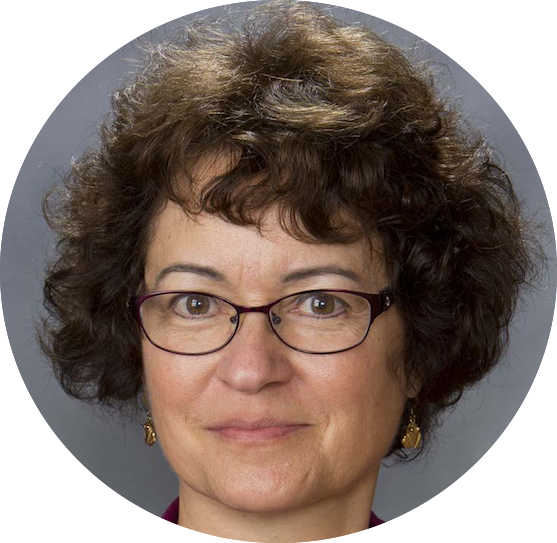 November 5, 2019
November 5, 2019
By Darcia Narvaez, PhD., CPS Partnership Community
Currently, greater attention is being paid to adverse childhood experiences (ACES) which can derail healthy development, leading to long term ill health and early death. Avoiding traumatizing children with abuse, neglect or violence is certainly fundamental to their wellbeing. Adults often point out the individuals that succeeded despite coming from adverse childhood experiences. Again, noting resiliency is also a good endeavor. But we should not take resiliency or avoiding trauma as good enough goals for our society?s children. Such standards are too low.
Early childhood (0-6 years) is a sensitive period for growing a partnership orientation. In fact, children evolved to expect partnership care in early life, what my lab at the University of Notre Dame calls the evolved developmental niche or evolved nest. Human infants are highly immature at birth, presenting as fetuses (compared to other animals) until about 18 months of age. So, many brain and body systems and functions are scheduled to develop after birth. Each component of the evolved nest supports healthy neurobiological development upon which skilled sociality, prosocial morality and virtue depend. Let me describe the ideal?nested?early life experience.
Children evolved to expect partnership care in early life.
Soothing perinatal experiences welcome the child in a way that shapes gene expression and personality toward calmness rather than irritability. Following natural processes during birth can actually make birth an ecstatic experience for mother, and practicing skin-to-skin contact immediately after birth promotes deep bonding between mother and child. Allowing the baby to initiate breastfeeding continues the respect for baby?s dignity and self-actualization. Breastfeeding on request over several years establishes the child?s circadian rhythms and fosters a well-functioning immune system and long term health generally. Mutual responsiveness in communications establishes a flexible relationship that ensures that baby is kept optimally aroused so that rapid brain growth (thousands of neuronal connections per second) bathes in growth-inducing biochemistries. Affectionate touch and physical closeness of caregivers 24/7 also supports the development of all systems, including neuroendocrinology which includes the ?cuddle hormone,? oxytocin. The oxytocin system, among many other systems, is fostered too by physical social play, something young mammals do routinely when they feel safe and well. Because of the great immaturity and substantial needs of a baby, humanity evolved to provision the nest by a community of responsive caregivers (like grandmothers) who share holding, playing with and sometimes even breastfeeding the baby. The community provides a web of support for mother and baby, establishing a positive climate for baby?s sense of self and relationships.
My research team is documenting the relation of nest components to child and adult well being, sociality and morality. Those who receive the nest as children show better mental health and more partnership skills of empathy, perspective taking and social trust.
The evolved nest is a child?s first partnership system. The nest used to be part of a gift economy routinely provided by societies around the world. Many traditional societies still offer such care, but the nest is degraded in industrialized societies that place an emphasis on moneymaking and domination. The domination of women, mothers and children make it difficult to provide the nest. Family attention to moneymaking and just getting through the day, sometimes out of desperation from low-wage jobs, makes it hard to attend to the needs of young children without an extended family to lend a hand. As a result, children in these societies can grow up with fewer partnership skills and with neurobiological functioning less than ideal for interpersonal sensitivity. They can be prone to stress reactivity, which undermines open mindedness and open-heartedness and makes domination narratives attractive.
When parents themselves have not experienced nested care, they may resist providing it to their own children. Because they themselves feel needy, their children?s needs can trigger stress reactivity and deep memories of feeling abandoned from some aspect of the nest not provided in childhood or from adverse childhood experiences. However, parents who address their own primal wounds can heal enough to be able to be responsive to the needs of their children. Parent groups that emphasize attachment and compassionate parenting can be vital places of support and healing.
One aspect of the evolved nest not yet mentioned but which facilitates healing is immersion in nature and nature connection. Scholars and others have noted that sense of attachment to the natural world has diminished in industrialized nations, to the detriment of ecological and planetary health but also to the detriment of human health. Daydreaming under clouds or a tree along with deep breathing can revamp one?s metabolism, making one more agreeable, attentive and attuned to others. Playing chase or sledding can help the player let go and laugh (and heal). Climbing hills or trees can build confidence. Planting native plants and trees and watching insects and birds appreciate them can restore a sense of responsibility toward the wellbeing of one?s local landscape. Parents and children can spend time together outdoors and improve their relationships, building partnership connections with our home, the earth.
Darcia Narvaez, PhD. is Professor of Psychology at the University of Notre Dame. One of her recent books, Neurobiology and the Development of Human Morality: Evolution, Culture and Wisdom won the 2015 William James Book Award from the American Psychological Association and the 2017 Expanded Reason Award. She writes a blog for Psychology Today (?Moral Landscapes?) and hosts the webpage EvolvedNest.org which has Darcia?s podcasts and blogs as well as essays by students who take her classes.
Contact Darcia: dnarvaez@nd.edu
![]()




[…] Read Darcia Narvaez? post in the CPS Leaders blog: The Evolved Nest Nurtures the First Partnership Relationship. […]